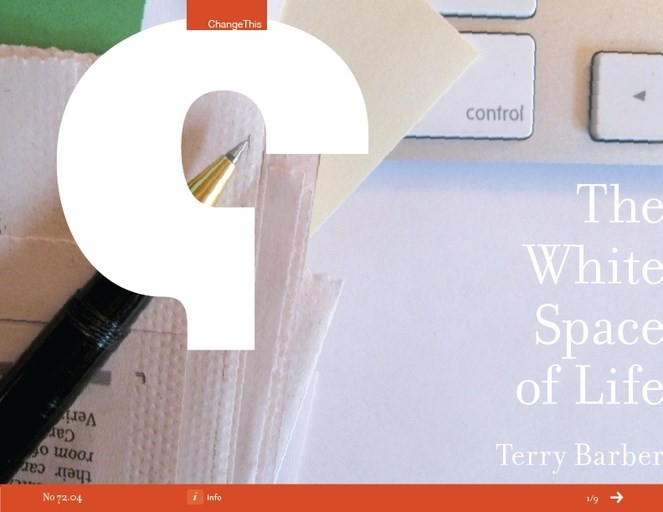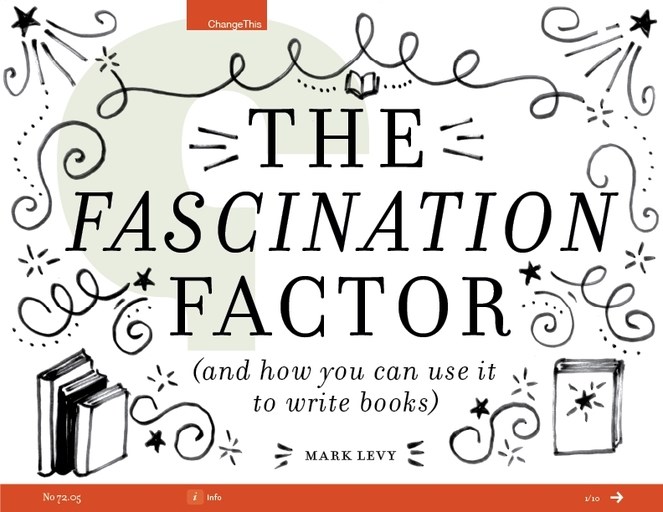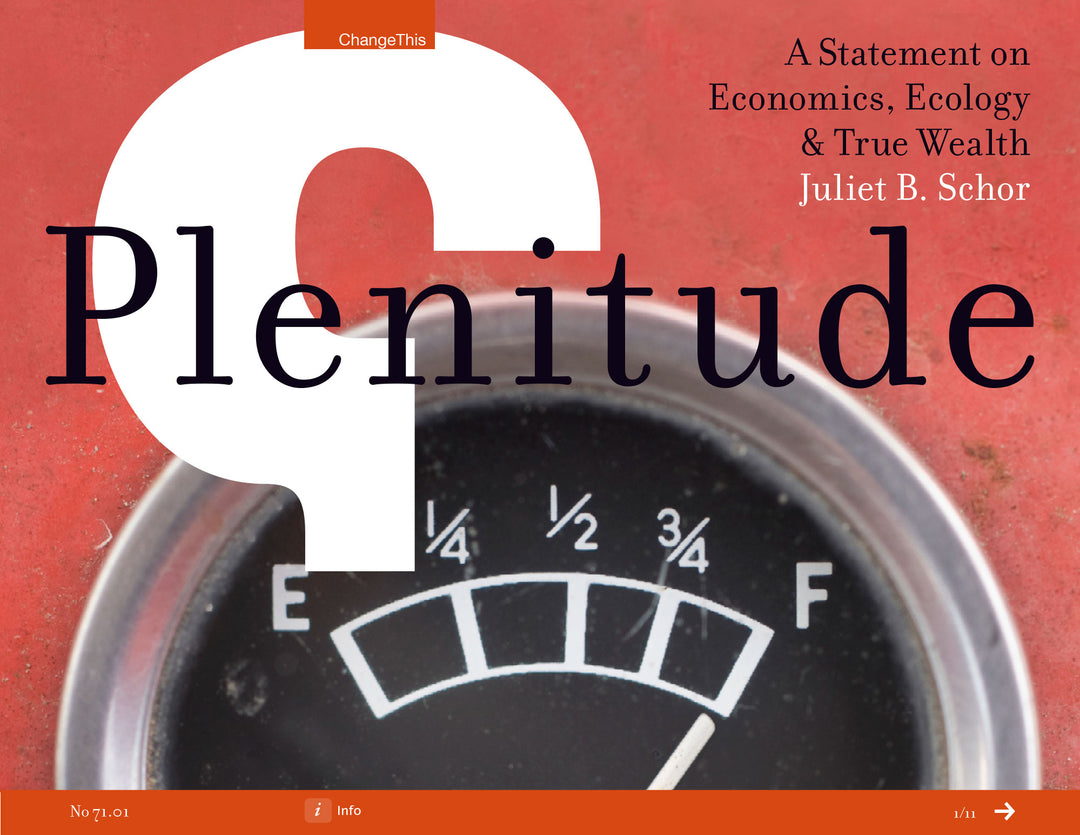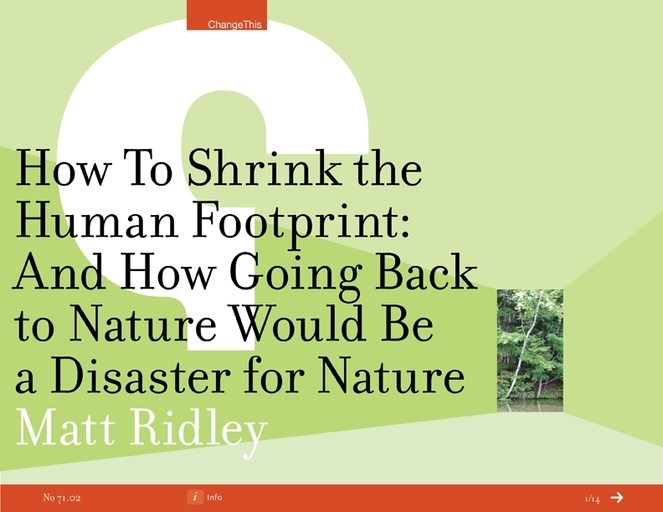ChangeThis RSS
"Most of my career has been in advertising, branding, and writing. Over the years, I've seen hundreds of ads, letters, proposals, and commercials. In the past, I would judge these creative renderings based on their message and intended audience—still not a bad consideration within the process. But now, as I begin passing judgment, I find myself critiquing something else: the white space. Does it have enough white space? I can't say it enough: I hate being crowded, and I really despise crowded letters, crowded ads, crowded 60-second spots. They try to say so much that I can't hear anything. Like the train, like the highway, like my closet, these communiqus and radio spots are all calling out in one accord, 'MORE WHITE SPACE. PLEASE!'"
Continue reading
"One of the hats I wear is that of writing coach. I guide businesspeople in writing books. During a typical first session, my client isn't sure what their book will be about, but they take guesses.
They tell me about what they think the marketplace wants, what they believe they can sell, and what might elevate them to guru status. They start tossing around premises. I stop them.
Books indeed need readers, so thinking about audience is important. Books also help writers achieve career goals, so thinking strategically about how a book can advance one's business makes sense.
But looking at those things too early leads to a bland book. Why?"
Continue reading
"Everybody has dreams regarding work, relationships, health and personal development...
But what does it take to go from Dream to Dare and, eventually, Do?
What are the secrets of real and lasting change?
You know exactly how it feels: you are frustrated, angry and unhappy. It's time to make that change. It's time to improve your relationships, start your own business, get that promotion, lose that weight, get those abs tuned, stop smoking, see your friends more often, start saving for your kids education, start applying for a different job... etc,etc.
Good luck! You will need it, because the odds are against you.
Of all people who consciously start personal change, more than 80% will have returned to their old habits within two years. No wonder the world is filled with cynical people, that are still in the same job they have hated for over 10 years, still smoke 2 packs of cigarettes everyday and still spend too little time with their kids.
It's time for change."
Continue reading
Business-as-usual economics relies on stimulating GNP to solve virtually all problems. But GNP is increasingly de-linked from the well-being of most Americans. Since the mid 1970s, it has diverged from most social well-being indicators. So even if GNP does continue to grow, and the recession is officially declared over, the implications for most households are different from in the past.
Continue reading
"I am going to argue that the ecological footprint of human activity is probably shrinking at an accelerating rate and that we are getting more sustainable, not less, in the way we use the planet. In a nutshell, the most sustainable thing we can do, and the best for the planet, is to accelerate technological change and economic growth."
Continue reading










